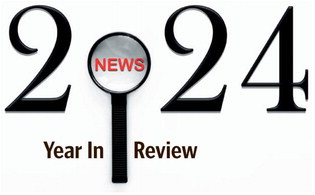Lawmakers Recommending Changing Session Deadlines
The 2023 legislative session saw an unprecedented number of bills, and lawmakers are considering changes to avoid backlogs and staff burnout in 2025. The Legislative Council Subcommittee on Logistics and Appropriations on Thursday, May 30, voted 3-1 to recommend to the full committee moving two big deadlines during the session, as well as raising the amount of money a bill needs in order to be considered by the House Appropriations Committee.
Legislative sessions will still remain 90 working days long.
Lawmakers decided to leave the decision on whether to hold committee meetings on Saturdays to leadership, with one Jewish lawmaker telling the Daily Montanan he hopes the Sabbath would be considered in their decision- making.Lawmakers recommended moving the “transmittal” deadline – typically at the halfway point in the legislative session where bills without an appropriation must have passed to the other chamber or they can’t advance – from Day 45 to Day 48.
The deadline for appropriation bills, previously Day 67, would be pushed to Day 69, if Thursday’s recommendations are adopted. Legislators also recommended upping the funding requirements to be considered an appropriation bill, from $50,000 to $500,000, which would lighten the load of the House Appropriations Committee, one of the busiest legislative committees.
If the threshold amount changes, House Appropriations would see a reduction in 63 bills from 199 heard in the 2023 session and Senate Finance and Claims would hear 53 fewer bills than the 167 bills that committee heard last session.
A graph produced by the Legislative Services Division shows the unprecedented increase in bill hearings during the 2023 legislative session, with every committee seeing an increase from the 2021 session.
Director of the Legislative Fiscal Division Amy Carlson attributed the increases to a number of unique factors to the 2023 legislature – Gov. Greg Gianforte’s “Red Tape Relief” bills, a high number of revenue bills because of the unprecedented budget surplus, as well as an increase in policy bills in the House Judiciary Committee.
“There wasn’t a person in the building who didn’t experience that high number of bills in one place or another,” she said.
Another fiscal division graph showed how there was a massive increase in action taken on bills before each of the big deadlines, and legislators hope moving the deadlines back might spread out that activity.
Legislators also considered the cost of holding committee hearings on Saturdays during the session, which Legislative Services Executive Director Jerry Howe said wouldn’t cost much as legislators aren’t paid if they aren’t “gavelled in” in either chamber, and staff typically work Saturdays on bill drafts.
Also regularly working on Saturdays outside the break following the transmittal deadline and the Easter holiday weekend would push up sine die, or the last day of session, from May 15 to April 25.
House Speaker Matt Regier, R-Kalispell, said he thought the decision should be left to leadership, saying Saturdays can be a “flexible tool,” even to allow staff to get caught up on bill drafts.
Rabbi Rep. Ed Stafman, D-Bozeman, told the Daily Montanan he hopes there are no legislative working days on Saturdays, the Sabbath.
“We don’t meet on Sundays, out of respect for Christian tradition, and I believe we ought to give equal treatment for members of other religious traditions,” Stafman said in an email.
Stafman noted the legislature doesn’t meet on Sundays to respect Christians going to church, and the often Christian prayer legislators stand for before floor sessions, which he said he feels left out of but stands to be respectful.
Stafman said he “reluctantly participated” in Saturday sessions during the 2023 legislature so as to not be “disruptive.” He said proxy votes – or giving your votes to another legislator in your absence – would not be an effective solution as “using them would still deprive my constituents of representation in the floor discussions which are an essential part of my participation in the process.”
“I was not happy about Saturday sessions, but I didn’t want to be seen as a troublemaker when leadership was trying hard to figure out how to do what we needed to do in a timely manner,” he said. “I resolved to call appropriate attention to it for the next session (the upcoming session), and, at a personal level, I doubled down on other aspects of my sabbath observance as a compromise.”
The subcommittee will present its recommendations to the full Legislative Council committee during their next meeting, which has not been scheduled, according to the committee website.


